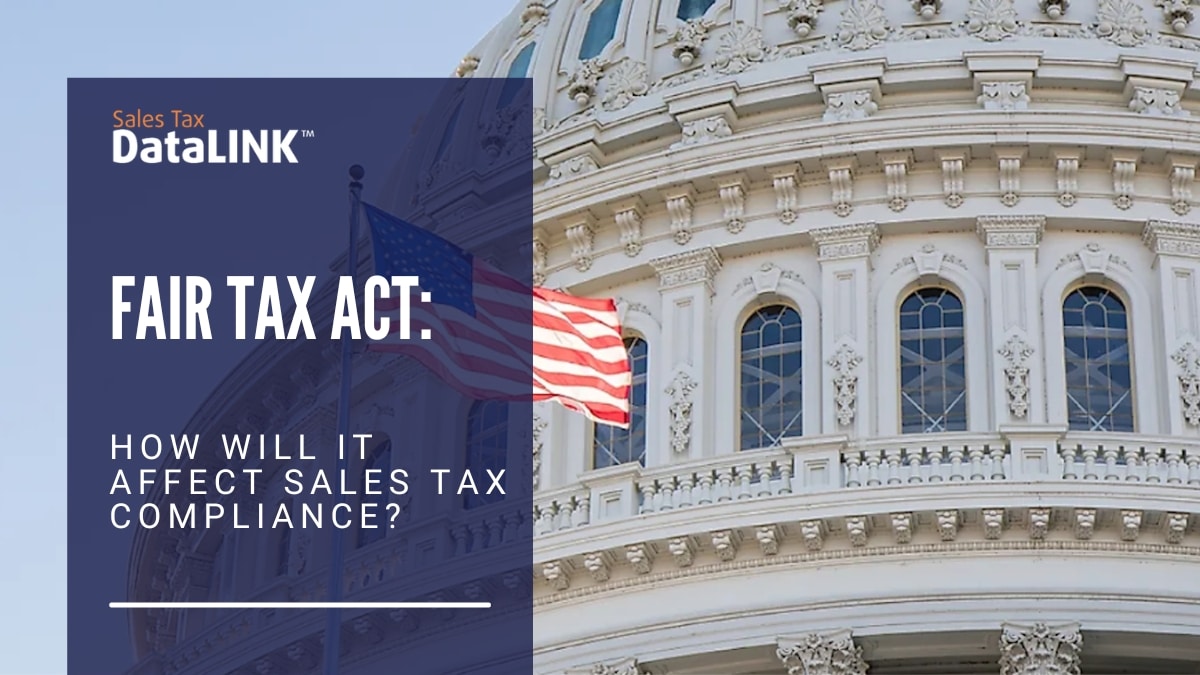National Sales Tax
The idea of a national sales tax has once again been introduced as a bill in Congress. The Fair Tax Act of 2023 is currently being considered in the House. This bill would, if passed, abolish the Internal Revenue Service, and repeal the income tax, payroll taxes, and gift and estate taxes. All those taxes would be replaced by a national flat tax of 23% tax inclusive. That means that a purchase of any good and services costing $100 would cost the consumer $130. In common parlance, that’s a 30% tax. We plan to go ahead and call it that since it can be confusing to use the special calculations the bill proposes.
Discussion on this bill mostly centers on two things. First, this is a tax that can increase the income of high earners by eliminating their income tax liability, but it will create hardship for poor people and double taxation for retired people since they will pay these taxes with the after-tax funds they saved and invested during their working lives. Second, it is a fair tax in the sense that everyone will pay the same. . “If you don’t want to pay a tax, don’t buy it. It’s as simple as that,” said the Congressperson who introduced the bill.
You can find plenty of opinions on both sides of the issue. What we haven’t seen is a discussion of what this will mean for sales tax compliance.
The simplicity of sales tax?
Right now, your company has to collect, calculate, file, and remit sales taxes in every jurisdiction in which you reach a revenue threshold. The thresholds are different in different places. The rules about what is taxable are also different in different places, as are the rates of taxation, the exemptions, the sales tax holidays, the filing system and schedule, and more. It’s not just 50 states and five territories, either. Every city and county can have its own additional sales taxes with additional sales tax rules and regulations.
This won’t necessarily change.
It might change. Some states might change their tax rules in response to the new national sales tax or in response to consumer behavior following the implementation of the new law. But there is nothing in the law that requires changes. The national sales tax would be in place of income tax, not in place of the current sales tax. It would be in addition to the current sales tax structure.
The national sales tax
So if you currently have established economic nexus in 32 states, you will continue to be required to comply with the 32 state sales tax systems and all associated city and county tax systems. You will also have to comply with the additional 30% tax nationally. While the states will generally collect those taxes, too, the bill does include some situations in which the federal government might collect those taxes, adding yet another jurisdiction to the mix.
If you currently sell services in multiple states, you might not have had to register or comply with sales tax in most of those states, since many states do not impose sales taxes on most services. That will end. In addition to any jurisdictions that currently tax your services, you will have the national 30% sales tax.
If you have revenue below the state thresholds in other states, you will now have to comply with sales tax in those states, too. One sale in Rhode Island would presumably now require you to go through the whole registration, collection, calculation, and filing process in Rhode Island.
Outsource it
Sales tax is already so complex and convoluted that most of our clients save money as well as time by outsourcing the entire process to us. Even if you decide not to outsource, you certainly will need to automate your sales tax compliance.
Sales Tax DataLINK. is a highly accurate, affordable sales tax solution. We provide excellent software or full services at predictable, transparent prices. Call 479-715-4275 and let us impress you.




